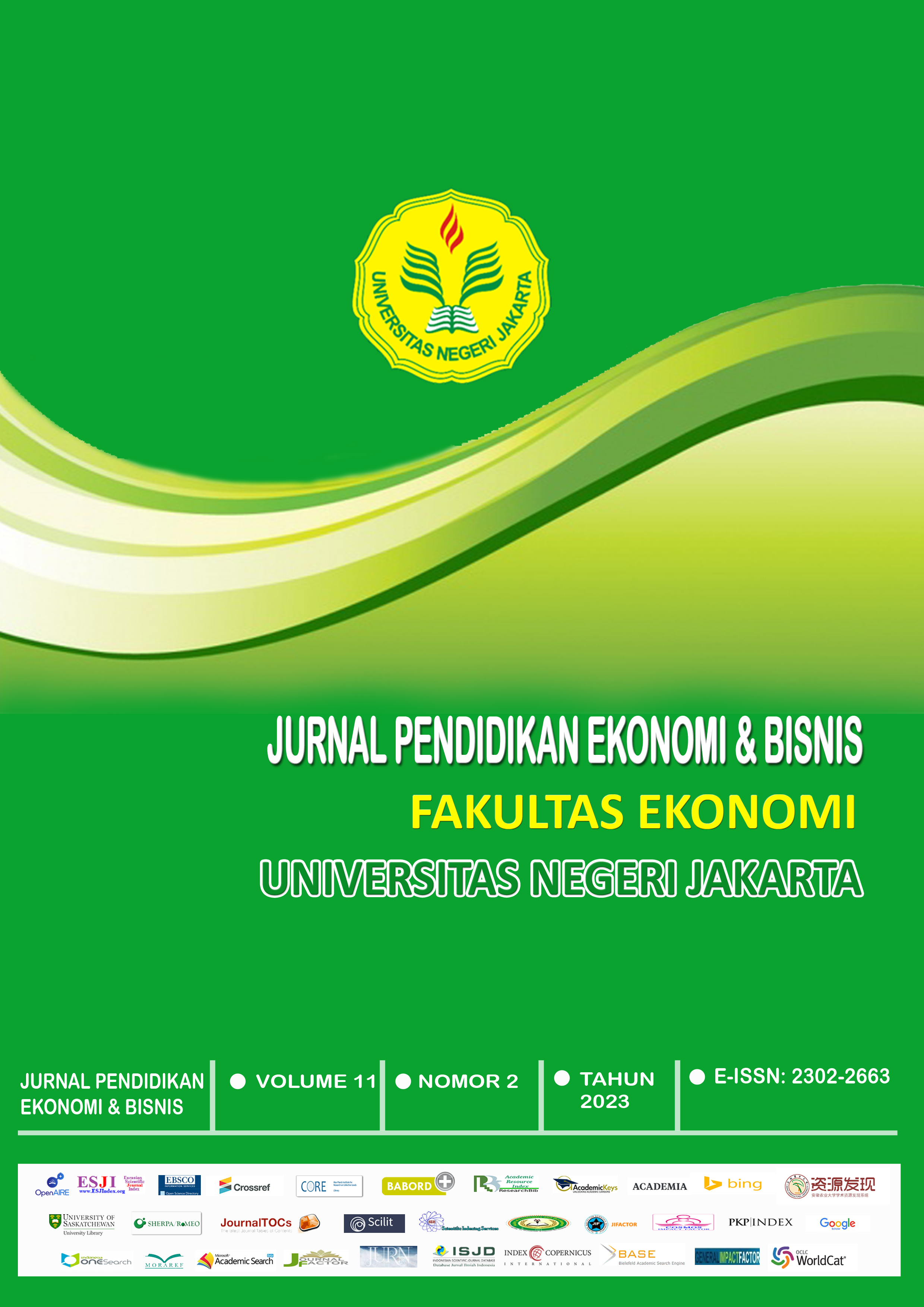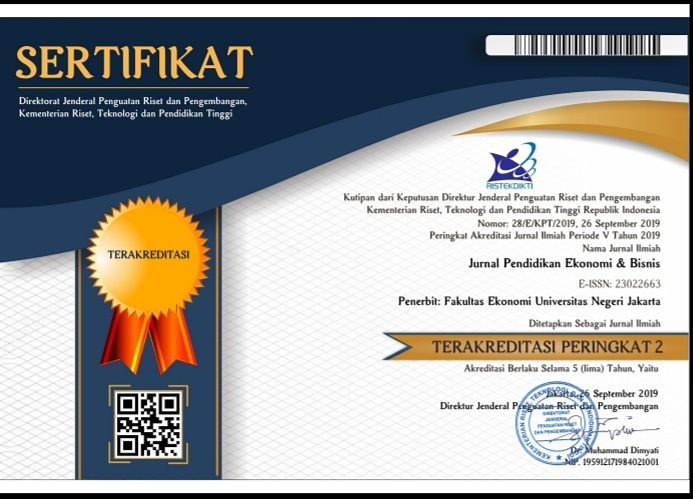Green Economy's Impact on Food Security Program Evaluation
DOI:
https://doi.org/10.21009/10.21009/JPEB.011.2.1Keywords:
Organic Fertilizer, Food Safety, Green Economy, Sustainable Climate ChangeAbstract
Sustainable green economic concepts are essential for food security initiatives. Utilising organic fertilisers allows for the long-term preservation of natural ecosystems in the Pinrang Regency and the economic prosperity of local farmers through the sale of agricultural products such as fisheries and plantations. By conducting in-depth interviews with participants, participating in direct observation, and reviewing pertinent materials, the researcher actively examines the study hypothesis in the framework of qualitative research. This qualitative study seeks to understand how organic fertiliser use affects agricultural production. Additionally, the study tries to determine whether this farming approach may improve farmers' quality of life. The study found that a green economy program that improves agricultural productivity could raise farmers' living standards. According to the study's findings, incorporating a green economy program into agricultural practices can enhance agricultural quality, farmers' green economy proficiency, and farmers' collective responsibility for the preservation of the environment.
Downloads
Published
How to Cite
Issue
Section
License
Articles in Jurnal Pendidikan Ekonomi & Bisnis are Open Access articles published under the Creative Commons CC BY-NC-SA License This license permits use, distribution and reproduction in any medium for non-commercial purposes only, provided the original work and source is properly cited. Any derivative of the original must be distributed under the same license as the original.








